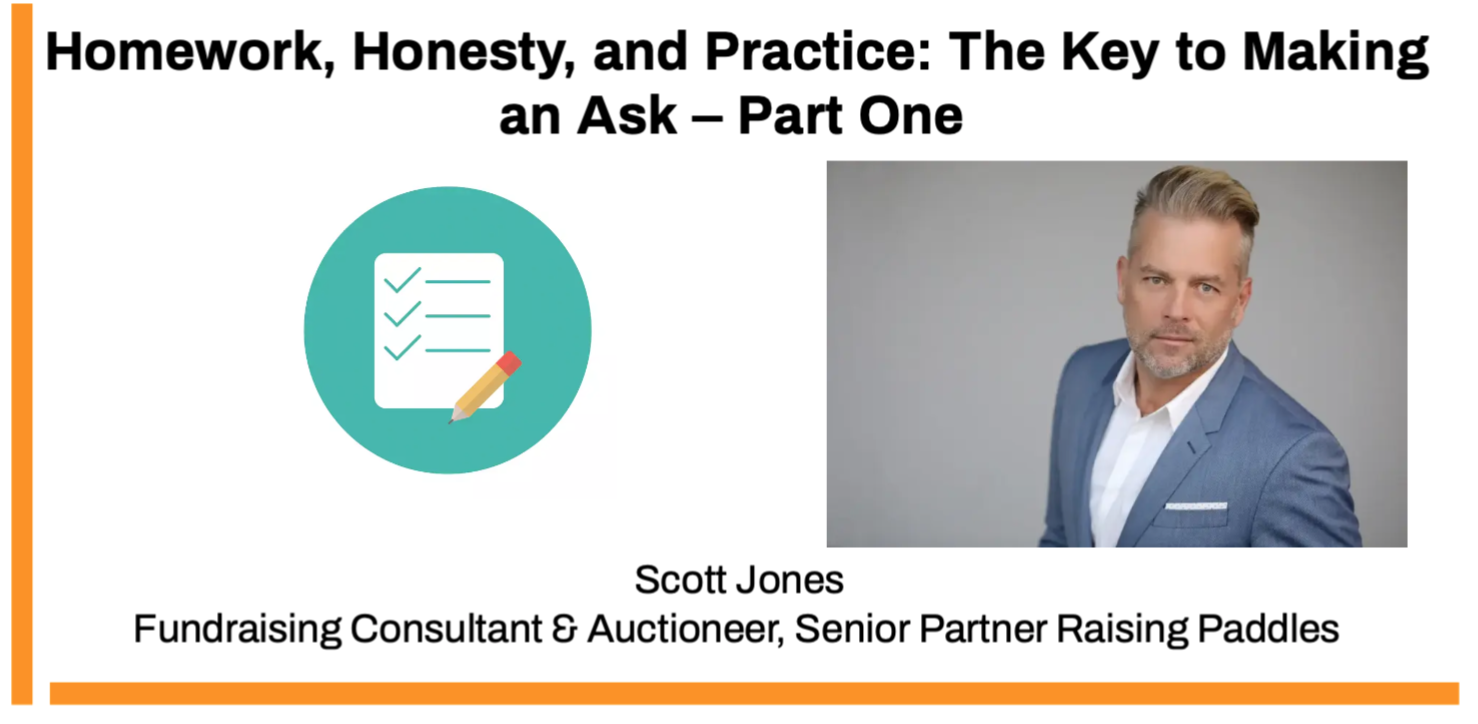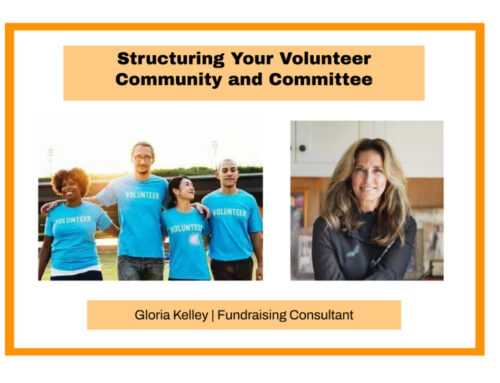By Scott Jones, Senior Partner, CFRE, CAI, BAS
Part I: The Homework
All too often, I find myself in conversation with fundraising managers concerning the uncomfortable position of having board members ask their connections for monetary support. We all agree that all fund development is founded on board support and participation. Why is it that some board members confidently seek out donations with great success, while other board members fade away in the shadows and tend to avoid participating in securing gifts from their network of connections?
I have discovered over the years the answer to the later part of this question is defined by the lack of knowledge and the tools to comply. I contend that most all board members genuinely have a desire to be supportive in most every way. As managers, we must provide the necessary tools and training to prepare our board members to go forth with the confidence when it comes to meeting our fundraising goals.
In this article, I will provide some a brief offering of how you as a manager can help your board members become more active in making the ask. The first step is completing a little bit of “homework”. This homework or due diligence will act as a guide to prepare you and your board members before making the ask. Before anyone makes an ask for money, these questions should be considered and answered.
Why did you give to our organization?
Two important reasons to answer this question are first, you must learn your “why”. Why are you connected to this mission? This provides an opportunity for each of you to share your story and/or stories of those being served as well. Secondly, inferring that you give to this mission sets you up for the invitation for others to join you in giving. If you are personally not committed to giving, why would there ever be expectations for others to give?
What motivates you to continue to give?
How as the mission impacted you, those it serves and the community? Most individuals in our sphere of influence will want to know of the good you are a part of and more importantly, they will want to be a part of what you do as well.
Is the future of this organization important to you and if so, why?
The answer to this question will identify your long-term commitment to this nonprofit not only through volunteerism but with a commitment of financial support. Here is a chance to really dive deep into your connection with the organization and share with potential donors providing them clear insight as to the depth of your involvement.
As I end the first part of this 3-part series, I urge managers to take the time to help each board member develop their why. Help them to identify what motivates them to give, why they are passionate about supporting this mission, and how it aligns with their values to offer support to improve public welfare. Once this has been established, the second step will be how to have a comfortable conversation with potential guests and donors. Honesty is the Best Policy will be my next installment on how to best prepare board members to be able to make a meaningful ask from their connections. Until then happy fundraising!






